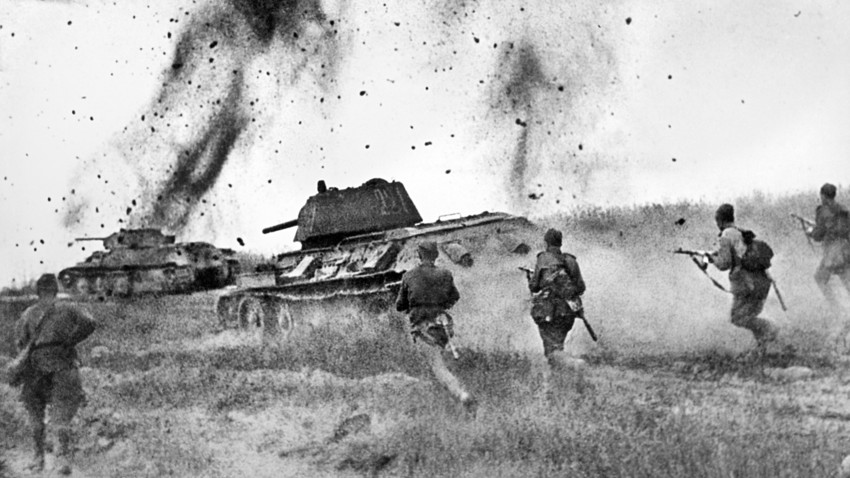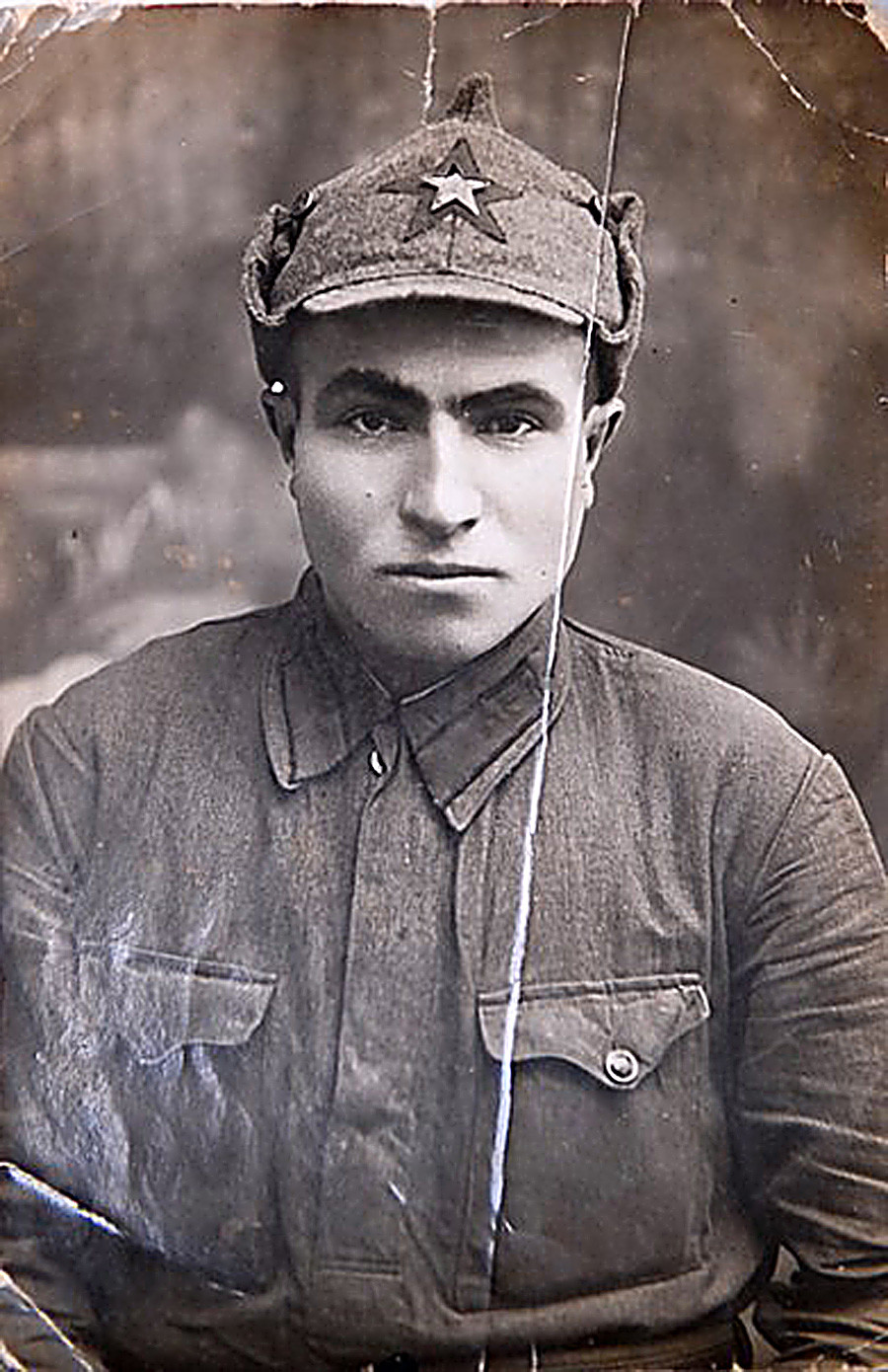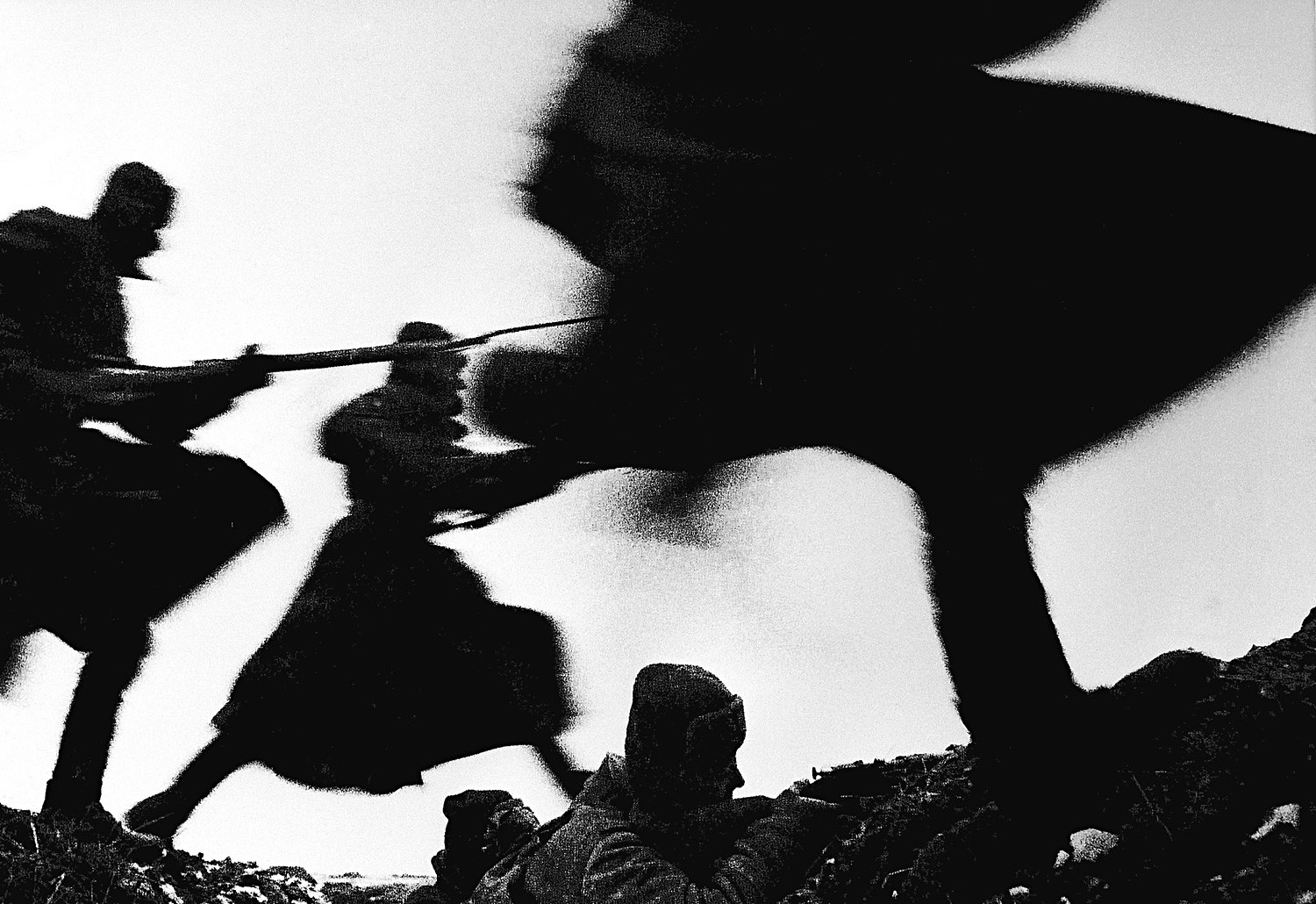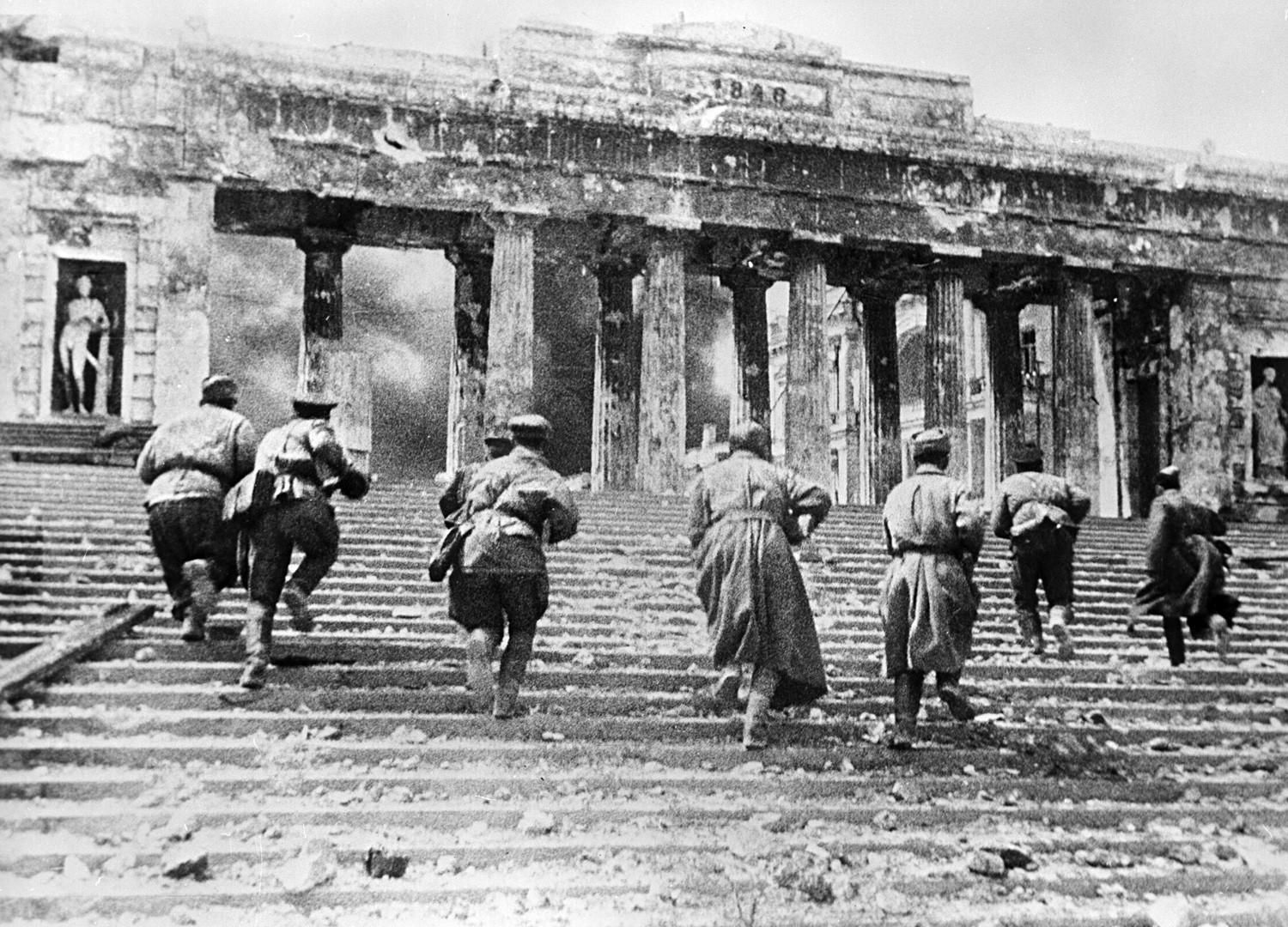Heroes with the same names as villains: Red Army's namesakes of Nazi leaders

Soviet troops attacking German defense during the Great Patriotic War. All the people rose to defeat Hitler - even those who shared surnames with German leaders
Ivan Shagin/SputnikIn July 1941, the Germans were on the offensive on the Eastern front. They advanced quickly, leaving burned villages and ashes behind. Adolf Hitler felt satisfied and awaited victory. He was reported to claim on July 4: “The enemy has practically lost the war.”
On the other side of the front, however, another Hitler was not ready to agree with his infamous namesake. Semyon Hitler, a Ukrainian Jew who had been serving in the Red Army as a machine gunner since 1940, did all he could to prevent Germany from winning – like many other millions of Soviet people.
Comrade Hitler

Semyon Hitler, a brave Soviet soldier who spared no effort defending the Motherland from Adolf Hitler's soldiers.
Archive photo“The Red Army soldier Hitler was not fond of the man with the same surname," Boris Akunin, a Russian author
Indeed, Semyon Hitler was so great at shooting the Germans that he was even decorated for his bravery – though awarding a 'Hitler' in that time took a lot of courage from his commanders.
As the documents report, “for eight days comrade Hitler was eliminating the enemy with his fire [from a foxhole].” The circumstances were more than dire – the Germans had broken through Soviet defenses near Tiraspol (now Moldova/
After that, he crawled for 10 kilometers to return to his fellow soldiers. Hitler didn’t even throw away his machine gun, though it surely was heavy and out of ammo; but the soldier didn’t want the Germans to claim the weapon.
Awarding bravery

Soviet soldiers attacking.
Dmitry Baltermants/SputnikThe commander of Semyon Hitler’s battalion, as the Russian site EG.ru wrote, was concerned about decorating this soldier. “On the one hand, his act of bravery was beyond doubt; on the other, it could be dangerous to sign a document awarding a man with such a surname, especially in the time of war.” But common sense prevailed: General Georgy Sofronov, who headed the Separate Coastal Army, personally signed the document giving Semyon Hitler a medal, “For Courage”.
After the
Strange coincidences
History knows only one Hitler fighting for the USSR on the battlefield, but there were plenty of other Nazi namesakes who behaved heroically and were decorated by the Red Army. Usually, they were people of German or Jewish origin. For instance, in 1944, Nikolay Göring, the man who shared a surname with Germany’s Reichminister of aviation, Hermann Göring, was given the Order of the Red Star for capturing a platoon commander of the SS Panzer Division, ‘Totenkopf’, and dragging him back to the Soviet camp despite machine gun fire.

Soviet submachine gunners fighting on Grafskaya Wharf (Sevastopol).
Yevgeny Haldei/SputnikYet another Göring, Yakov, who
While Rudolph Hess, Hitler’s henchman who was arrested in Britain in 1941, devoted his life to the Nazi cause,
The Soviet Bormann led the air force in
In case you want to discover more about the Soviet struggle against Nazis, read our article on the reasons why the Red Army won the battle of Stalingrad.
If using any of Russia Beyond's content, partly or in full, always provide an active hyperlink to the original material.
Subscribe
to our newsletter!
Get the week's best stories straight to your inbox